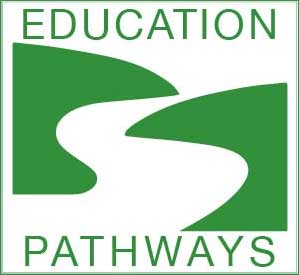Guarding Against Fraud in Mortgage Transactions

In mortgage transactions, where dreams of homeownership are realized, ensuring the integrity of the process is paramount. Fraud poses a significant threat, potentially derailing the dreams of both homebuyers and mortgage professionals alike.
Understanding Mortgage Fraud
Mortgage fraud takes various forms, ranging from misrepresentation of information to more sophisticated schemes. Common types include identity theft, income falsification, and property value inflation. Professionals in the mortgage industry must be well-versed in recognizing these red flags to safeguard their clients and uphold the integrity of the lending process.
Emphasizing the Importance of Vigilance
Vigilance is the cornerstone of fraud prevention in mortgage transactions. Professionals must maintain a keen awareness of potential warning signs throughout the entire process, from application to closing. Recognizing irregularities early on can prevent financial losses and reputational damage, reinforcing the trust that clients place in their mortgage advisors.
Best Practices for Identifying Fraud
- Thorough Document Verification
Professionals should meticulously review all documents submitted during the mortgage application process. Ensure that income statements, tax returns, and other financial documents are legitimate and consistent.
- Cross-Verification of Information:
Cross-check information provided by the borrower with external sources. Verify employment details, income, and other critical information to ensure accuracy.
- Utilization of Anti-Fraud Technology
Embrace cutting-edge technology tools designed to detect and prevent fraud. Automated systems can analyze data patterns and identify anomalies that might indicate fraudulent activities.
- In-Depth Property Appraisal
Conduct thorough property appraisals to validate the claimed property value. This is particularly important in preventing schemes involving inflated property values.
- Background Checks
Perform background checks on all parties involved in the transaction, including borrowers, real estate agents, and appraisers. This helps uncover any history of fraudulent activities.
- Secure Communication Channels
Establish secure communication channels with clients and other involved parties. Encourage the use of encrypted platforms for exchanging sensitive information to reduce the risk of interception.
- Educating Clients
Educate clients about the potential risks of fraud and the importance of providing accurate information. An informed client is more likely to be vigilant and cooperative throughout the process.
Preventing Mortgage Fraud
- Implementing Robust Internal Controls
Mortgage professionals should establish and enforce strict internal controls. Regular audits and reviews can help identify weaknesses in the system and prevent fraudulent activities.
- Continuous Education and Development
Continuous training is essential for keeping professionals updated on the latest fraud schemes and prevention techniques. Knowledgeable staff is better equipped to spot irregularities.
- Collaboration with Industry Watchdogs
Foster collaboration with industry watchdogs, law enforcement, and other mortgage professionals. Sharing information about emerging fraud trends can contribute to a collective effort in preventing and combating fraud.
- Whistleblower Programs
Implement whistleblower programs within organizations to encourage employees to report suspicious activities without fear of reprisal. This can serve as an additional layer of defense against internal fraud.
- Encouraging a Culture of Ethical Conduct
Cultivate a workplace culture that values integrity and ethical conduct. Emphasize the importance of adhering to ethical standards in all dealings, creating an environment where fraud is less likely to occur.
The Consequences of Mortgage Fraud
Mortgage fraud can have severe consequences for all parties involved. Homebuyers may face legal repercussions, financial losses, and the loss of their dream home. For professionals, the fallout can include damage to reputation, legal consequences, and increased regulatory scrutiny.
Conclusion
In mortgage transactions, staying ahead of fraud is not just a best practice; it’s a professional responsibility. Vigilance, thorough verification processes, and a commitment to ethical conduct are the cornerstones of a robust defense against fraud. By implementing these best practices, mortgage professionals can not only protect their clients but also fortify the foundation of trust upon which the mortgage industry thrives. In doing so, they contribute to the realization of homeownership dreams while upholding the integrity of the mortgage lending process.
